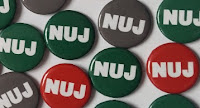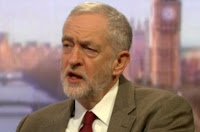David Pemsel, chief executive of the Guardian News & Media, announcing plans to cut costs by 20 per cent: “We need to create a confident and secure footing to then be able to be as innovative and progressive as we’ve always been. I don’t want to just pile on the ‘let’s be innovative and bravely go into this new world’ when the foundation is that fragile.”
Peter Wilby in the New Statesman: "The Guardian’s abiding problem, however, is that the people who run it seem unable to add up, or at least read a balance sheet. Company revenues are up 10 per cent over the past five years, which isn’t bad in these straitened times. Alas, costs rose by 23 per cent, with 479 new editorial and commercial staff hired to work on a paper that already has many more journalists than its rivals."
Tony Gallagher @tonygallagher on Twitter: "Can anyone tell me where in the paper is The Guardian story on its horrendous losses?"
The Daily Telegraph reports: "Jack Straw, a member of the five-strong panel reviewing the Freedom of Information Act, advised a paying client how to avoid the release of information relating to the parliamentary scandal in which he was engulfed. Mr Straw told his client, a commodities firm, that it could argue that emails he exchanged with the Foreign Office on its behalf contained “commercially sensitive” information that should not be made public under the legislation."
BuzzFeed News reports: "The watchdog set up by the government to oversee a new system of press regulation has spent at least £589,000 of public money in its first year of existence, despite having no one yet to regulate, BuzzFeed News has learned. The Press Recognition Panel was founded to oversee a new system of press regulation following the Leveson inquiry into media ethics following phone hacking at the News of the World. However, a lack of support from the media industry means the panel, which has been promised up to £3 million of public funds over three years, currently exists in isolation, with a staff of six and no press regulator to oversee."
Peter Preston in the Observer on reporting opinion polls: "Papers and broadcasters must test the information they display. They have a duty not merely to mention sample size or methods used, but comparative costs of various surveys (more expense should mean more skilled resource) and the record of individual pollsters. They need someone to hand like Professor John Curtice who can crunch his own numbers. They need the utmost caution when they blithely turn data into a shock headline. And if that entails much less zippy certainty at too high a cost so we don’t get another 1,942 polls by 2020? Well, into every media life, a little chastened scepticism must eventually fall."
Andy Coulson in PRWeek on his new PR company Coulson Chappell: "I’ve always wanted to establish and grow my own company and in Henry I have the perfect business partner. From our combined experience Coulson Chappell can offer a unique perspective to clients looking for clear, discreet and effective strategic advice."
John Prescott @johnprescott on Twitter: "I see Andy Coulson has got a new job in PR. I left him a good luck message on my mobile."
Michelle Stanistreet, NUJ general secretary, on a 38 degrees petition calling for Andrew Neil and Laura Kuenssberg to be sacked for inviting Stephen Doughty, the shadow foreign affairs minister, to announce his resignation on the Daily Politics show: "Calling for journalists to be sacked for doing their job is farcical. This was a legitimate story any journalist would have wanted to run on their show. You cannot run witch hunts against journalists just because you don't like the news they report. In the same way we supported journalists – at the BBC and elsewhere - who were attacked on social media by people from both sides of the argument on independence during the Scottish Referendum, we will not tolerate people who try to suppress legitimate news coverage."
Home Secretary, Theresa May, in a speech at the Journalists’ Charity’s annual reception at the Irish Embassy, said it was not right that people had been put on pre-trial bail: “Not just for months, but sometimes years without being charged, and their life put on hold”.
Charlie Ashcroft @charlieashcroft on Twitter: "The Central Somerset Gazette with an early contender for headline of the year so far."










































